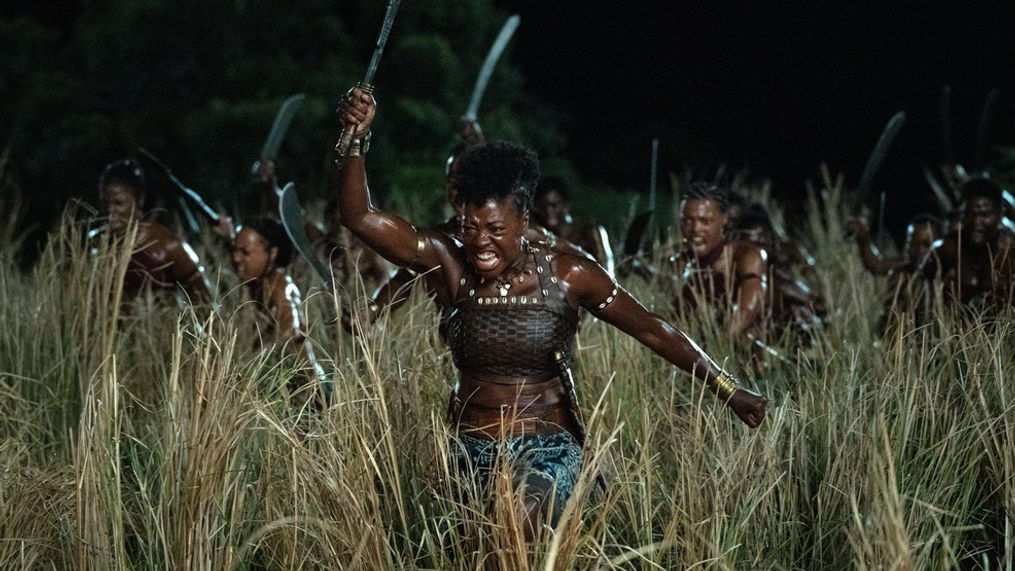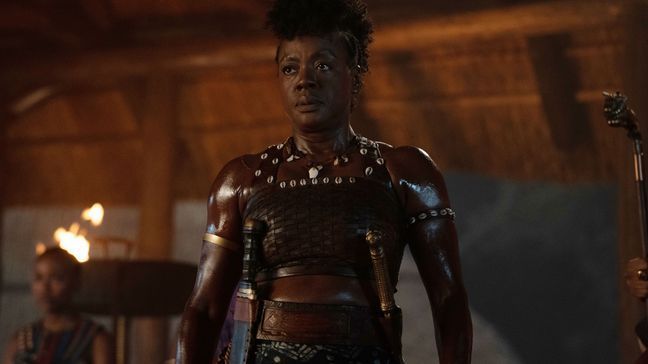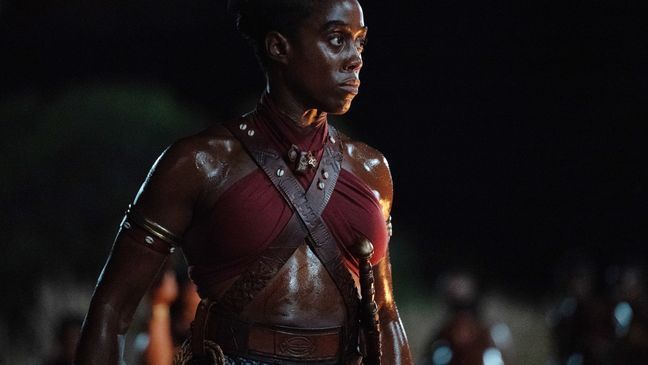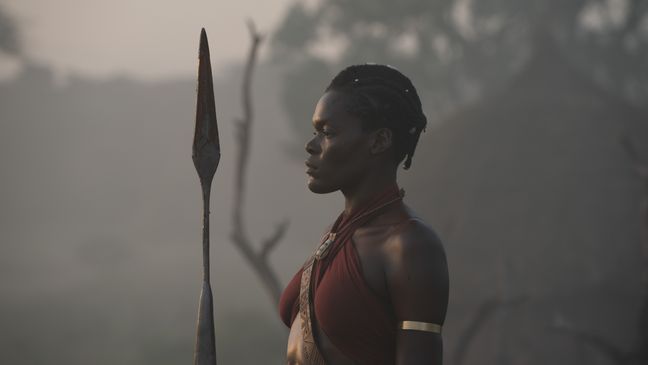Review: Hollywood clichés hold back invigorating 'The Woman King'
SALT LAKE CITY (KUTV) — The Woman King
3.5 out of 5 Stars
Director: Gina Prince-Bythewood
Writers: Dana Stevens, Maria Bello
Starring: Viola Davis, Thuso Mbedu, Lashana Lynch, John Boyega
Genre: Action, Drama
Rated: PG-13 for sequences of strong violence, some disturbing material, thematic content, brief language and partial nudity.
Studio Synopsis: The Woman King is the remarkable story of the Agojie, the all-female unit of warriors who protected the African Kingdom of Dahomey in the 1800s with skills and a fierceness unlike anything the world has ever seen. Inspired by true events, The Woman King follows the emotionally epic journey of General Nanisca (Oscar-winner Viola Davis) as she trains the next generation of recruits and readies them for battle against an enemy determined to destroy their way of life. Some things are worth fighting for
Review: “The Woman King” is a crowd-pleasing, must-see epic that features a fantastic ensemble cast. It’s a really good action film. Please, forgive me for wanting it to be more than that.
The story is inspired by the stories of the Agojie, the female warriors of the African Kingdom of Dahomey. The Agojie existed for around three centuries. They weren’t a flash in the pain or an outlier. They trained hard, developed skills, and, like wrestlers, used the weight and balance of their opponents to their advantage.
Many of the characters in the film existed; African Kingdoms often sold their prisoners of war as slaves to Spanish, English, and American slavers; and palm oil became a lucrative trade fort the Dahomey Kingdom, in the mid-1800s. Still, the film is “inspired,” not “based,” on true stories. Does this matter? To an extent it does. But there are hundreds of historical films that aren’t based on specific events or people. I’d prefer that they were. And yet, their stories may not be entirely factual, but that doesn’t mean they aren’t truthful.
What keeps “The Woman King” from being a great film is the fact that the movie needs to be as accessible to as many audience members as possible. It bested the odds to even get made. Some films can afford to fail. They won’t take an entire subgenre with them. For example, “The Northman” is a fantastic Viking tale that is beloved by critics and yet it lost millions of dollars because it is not a traditional action film. It’s a hallucinatory nightmare of sorts. If there are rules of action cinema, “The Northman” breaks them all. It’s underperformance (the film earned nearly $70 million worldwide, but that apparently only covered most of the production budget) doesn’t mean there won’t be more Viking films.
“The Woman King” doesn’t have that luxury. It can’t afford to be a wonderfully bizarre blockbuster-budgeted art house film. Again, forgive me, I wish it could have been.
“The Woman King” is burdened by skeptics who can’t imagine why anyone would want to see a film about Black women. It has to be the sort of film that instantly pulls an audience in and gives them an experience that they will gladly recommend. I can recommend “The Woman King” to just about anyone. I can’t recommend “The Northman” to remotely as may. If “The Woman King” succeeds it might open the door for similar projects. If it fails, we might not see anything resembling this kind of story outside of a superhero film.
So, what would I change about “The Woman King?” I’d cut back the dialog and put it in its native language; I’d strip away the love story that exists between Nawi (Thuso Mbedu) and Malik (Jordan Bolger); I’d abandon the bloodline connection; I’d make the score as avantgarde and authentic as I possibly could (absolutely no disrespect intended toward Terence Blanchard who is a phenomenal composer/musician who has scored more than 40 films); and I would make the narrative as true of a story as I possibly could. Even if that gave the story a less Hollywood ending.
Ultimately, what holds “The Woman King” back is its script. Don’t let that talk you out of seeing the film. It’s fantastic entertainment.




